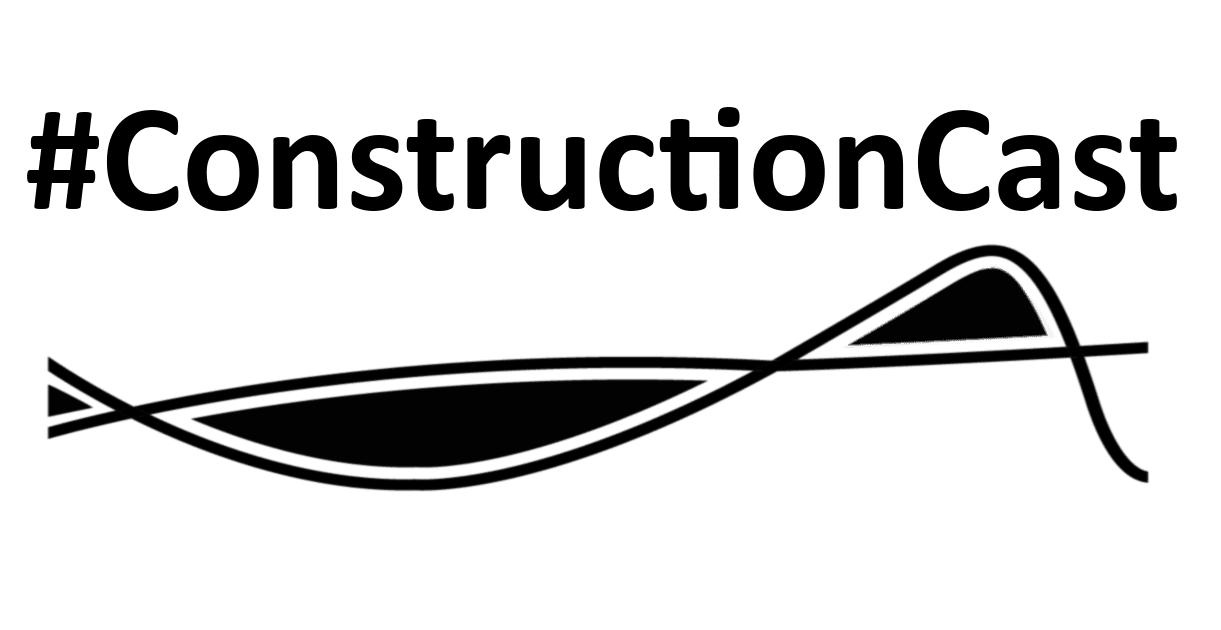This week marked the first anniversary of #ConstructionCast and the anniversary of the first lockdown. Thank you to the thousands of you who have joined us over the last year. We hope that 2021 might see us take #ConstructionCast live and we’ll see you in person.
However, this week we looked at adjudication with Lena Barnes, Jennifer Jones, Sarah McCann and David Oram. Watch the video, or catch up with our brief write-up below.
The Background – Contractual or Statutory?
Lena tells us that adjudication comes from the HGRGA in the UK. It applies to construction contracts. Although this definition is quite wide, there are some specific exclusions. Under the act, the construction operations need to be in England, Wales or Scotland. Whilst there is flexibility to adopt your own procedure, you must comply with the HGRGAs basic requirements including the right to refer a dispute to adjudication at any time. If you fail to comply with the procedures, the scheme for construction contracts applies.
The UK was the first to develop a system of ‘statutory’ adjudication, enshrined in national law. It has now spread to Singapore, Malaysia, Australia and Ireland. It applies to contracts formed after 24th July 2016 in Ireland. Unlike the UK, Ireland’s system is much narrower. There, you must use the scheme and it is only available for payment disputes (though this is not defined in the act). Ireland was a little slow to get going, but the number and value of disputes referred to adjudication in Ireland is rising. This is seen in the reports available from the Irish government website. Initial signs also appear to suggest that the Irish courts are supportive of adjudication.
The advantages to statutory adjudication are that you cannot contract out of it, so the bargaining power of the parties cannot play a part. In jurisdictions where adjudication is contractual you will see provisions such as not being able to adjudicate till the project finishes. This in turn has the potential to remove the speed benefits of adjudication and the flow of cash in a project.
Motacus v Paolo Castelli
This session, we wanted to look at Motacus case (Motacus Constructions Limited (MCL) -v- Paolo Castelli S.P.A. (PC) [2021] EWHC 356 (TCC)), which David and Jennifer were involved with. David says he spends much of his time dealing with adjudication.
Motacus was unusual. The parties entered a bespoke contract which didn’t take into account the provisions of the construction act. The construction works were carried out in the UK, but the contract stated that any dispute must be resolved in the French courts in Paris. The law of the contract was Italian. This created an interesting set of geographic requirements! However, because the works were carried out in England, adjudication applied. The difficulty arose when enforcement of the adjudication decision was needed.
One of the issues mentioned before Brexit was the ability to get an easy enforcement from the courts in the European Union, so what happened next in this case, is particularly interesting.
Once an adjudication is complete, Jennifer notes that enforcement can be a challenge. It is no good having a decision in your favour if you cannot get that decision confirmed and payment enforced by the courts. If there is not a treaty between jurisdictions, it is very difficult to enforce internationally. It is notable that Arbitration is popular internationally, because of the New York convention on enforcement, to which many countries are signed up.
Relationship Status: It’s Complicated…
However, Adjudication must be enforced in the courts. Which court is usually determined by the construction contract. Post-Brexit things have changed in terms of deciding which court has jurisdiction. The treaty that governed the position pre-Brexit (Brussels re-cast) has been lost. This could have presented parties in the Motacus case with a problem. However, the UK is a signatory to the Hague Convention on choice of court clauses, as is the EU. So this solves the problem to some extent, but is limited because it only deals with civil and commercial disputes where there is an exclusive choice of court clause. This tightly limits the scope of the convention and so its utility for resolving choice of court issues.
To add to the complications, the Hague Convention allows non-chosen national courts to accept jurisdiction only where an ‘interim measure of protection’ is being applied for. The argument in Motacus was whether enforcing a temporarily binding adjudicator’s decision was an interim measure or not. In Motacus the team successfully argued that it was an interim measure, so the English courts could take jurisdiction and enforce.
…But How Complicated Is It?
One of the criticisms of adjudication is that it has become too complex – we asked Sarah McCann if she agreed. Sarah thinks the answer may not be straightforward. For example, there is not one type of construction dispute. For simple payment disputes, adjudication can be good for keeping cash flowing. One of the questions is what to we mean by efficient? Adjudication has become more costly, but by the same token, so have arbitration and litigation so in comparison the process is efficient.
As an indicator that it works, Adjudication now exists in many common law jurisdictions. Generally, stats suggest that the vast majority of disputes adjudicated don’t find their way into the court system. Sarah suggests this may be evidence indicating the success of adjudication. She concedes it has certainly become more complex, more lawyer driven and there is now extensive case law which there wasn’t before. Costs have risen as a result. There are low cost fixed adjudication schemes, but Sarah has no direct knowledge of anyone using these.
Cutting the Cloth…
In terms of the types of dispute, Sarah says that as an adjudicator she finds that the process may not so well suited to professional negligence disputes or complex delay analysis claims. This may be why some of the other jurisdictions have tightened the types of disputes that can be adjudicated.
She does think that the quality of adjudication decisions is getting better. There will still be some variations in adjudication decisions out there, but the body of adjudicators is more extensive than it has even been, as is the expertise the variety of adjudicators bring to the table.
In the current circumstances, Sarah thinks that there has been an improvement in the use of technology. Everyone is much more used to Zoom and only dealing in electronic document transmittal – although there are still some adjudicators who insist on hard copy. She thinks that some adjudicators will make use of remote hearings. Sarah herself had a day of online adjudication hearings and it worked smoothly and saved time and expense for many involved.
Insolvency?
Finally, we ask Lena quickly about insolvency and the Bresco case. Insolvent companies can now pursue adjudications – but does this just move the arguments further down the line? When we get to the enforcement stages, we will need to look at the effect of insolvency. Lena and others initially thought that we would see a raft of insolvency related adjudications after the decision, but few have materialised.
David adds that the trick with insolvent situations, is to make sure you have all your ‘ducks in a row’ before you start. Identify what you will be saying at enforcement before you start the adjudication. If you can’t win at enforcement, the whole thing could be a waste of time.
Top Tips for Preparing for Adjudication:
We ended on single tips for adjudication.
- Lena highlights staff availability – make sure your team are not going on holiday.
- Sarah says the presentation of evidence, think about how it will be presented, make it easy for the adjudicator. See if you can hyperlink things in electronic documents. Fact based delay analysis rather than software based ones.
- David advises referring parties to have everything ready to go. Don’t start before you have the evidence together. Also look towards the end result – sometimes in the case of multiple adjudications you end up wishing you had gone to court.
- Jennifer advises to carve things up into manageable chunks. An all singing all dancing final account adjudication may not be the best idea.
Thanks as always to all our speakers and join us next time for another #ConstructionCast!

